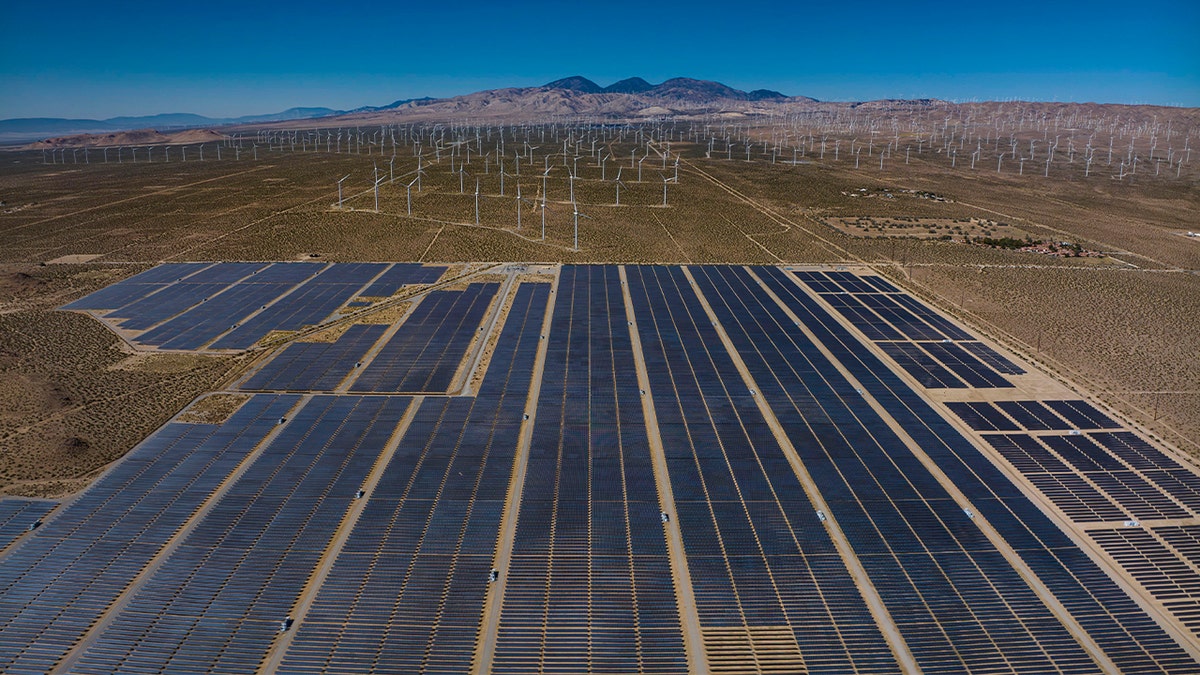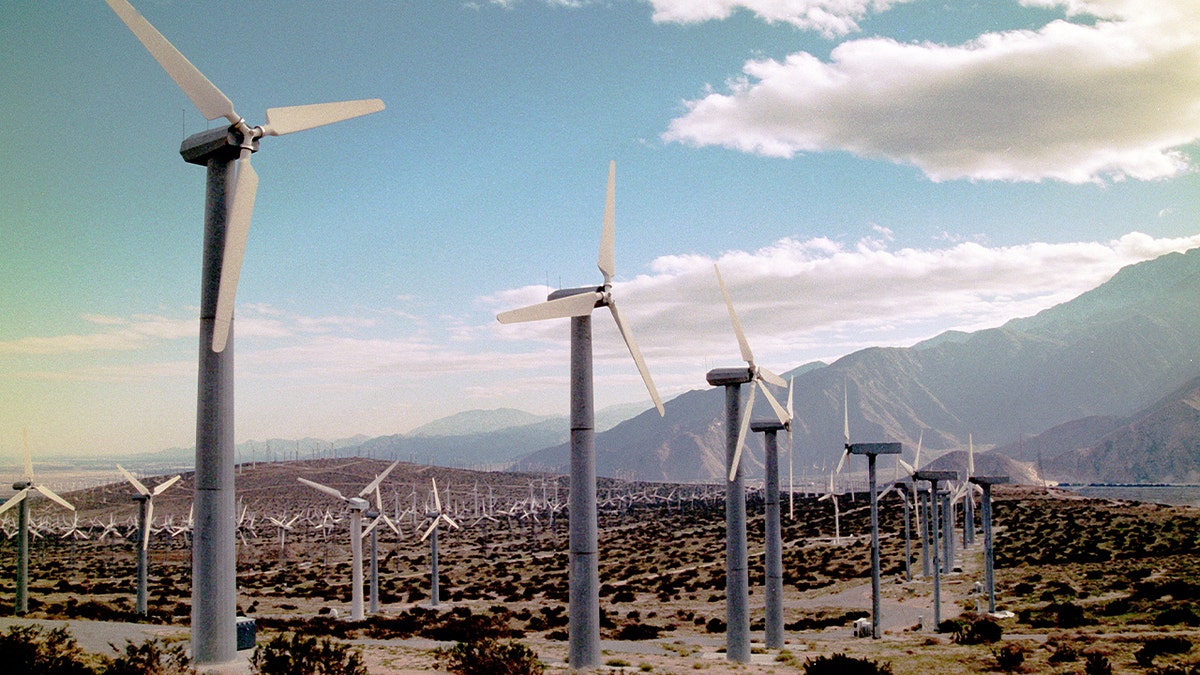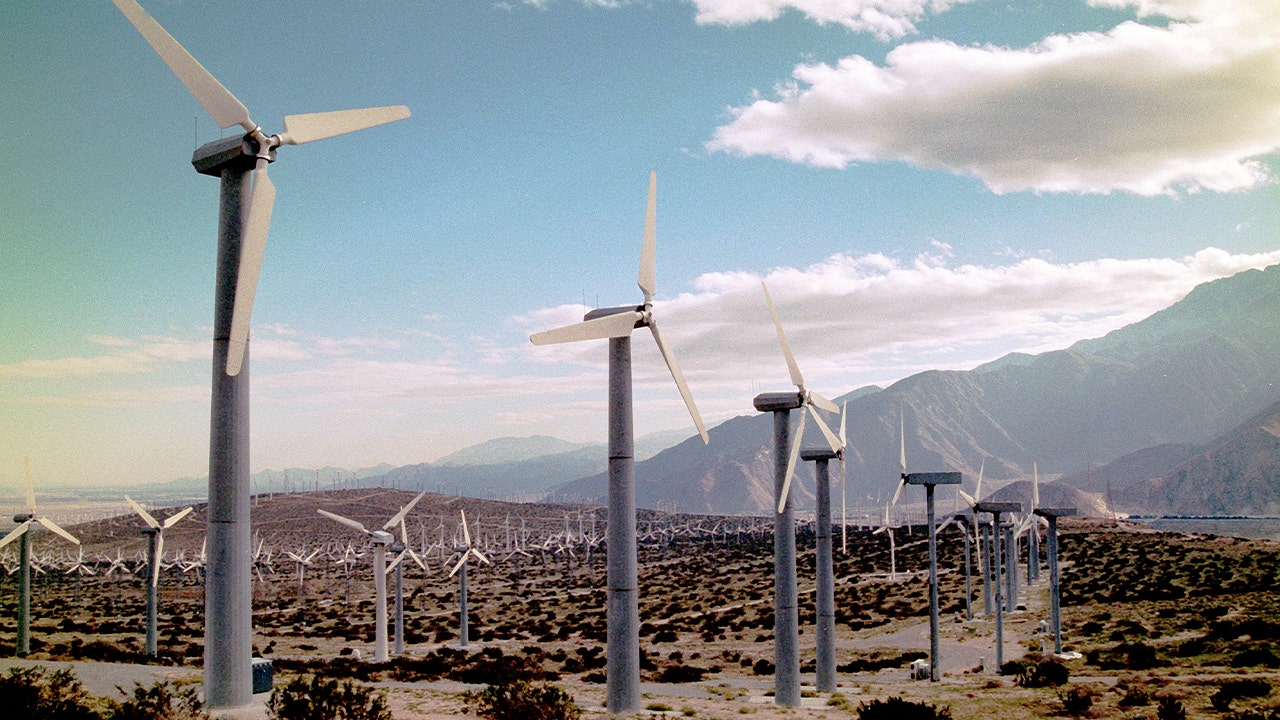In 2024, voters in multiple states will decide on key ballot initiatives that will shape their climate and environmental policies for the next several years.
Washington residents face a particularly important decision on whether to repeal the state’s major climate policy, the Climate Commitment Act, which aims to reduce greenhouse gas emissions by 95% below 1990 levels by 2050.
The measure, dubbed Washington Initiative 2117, would repeal the 2021 law and prohibit state agencies from implementing any carbon cap-and-trade system.
Proponents of the bill have heavily criticized the law and claim the current carbon tax has increased energy costs.
HARRIS DROPS MILLIONS ON PRIVATE JET SPENDING DESPITE CALLING CLIMATE CHANGE AN ‘EXISTENTIAL THREAT’
A woman drops off her ballot ahead of the primary election, on March 4, 2024, at the Los Angeles County Registrar in Norwalk, California. (Frederic J. Brown/Getty Images)
Let’s Go Washington, a political action committee (PAC) endorsing the measure, suggested that if the bill passes, voters will save on gas, groceries and on energy bills.
“We are urging all Washington residents to vote yes, pay less on 2117 to finally hold [Gov. Jay] Inslee’s administration accountable for their arrogant and reckless policymaking,” Brian Heywood, Let’s Go Washington founder, told Fox News Digital in a statement. “The Climate Commitment Act is a deeply flawed and broken program that’s taken billions of dollars off the backs of everyday Washingtonians while doing nothing to reduce carbon emissions.”
A group opposing the bill, however, tells Fox News Digital that passing the measure would mean “more pollution in our air and water.”
LAWSUIT ACCUSES STATE DEPARTMENT, DOJ OF STONEWALLING FOIA REQUESTS REGARDING CLIMATE OFFICE PERSONNEL
“I-2117 is a deceptive initiative opposed by more than 500 organizations across Washington, including small businesses and major employers, firefighters, doctors and nurses, the majority of federally recognized Tribal Nations in Washington state, because it would threaten our health and devastate investments in transportation,” said Kelsey Nyland, a spokesperson for the No 2117, a coalition campaigning against the measure. “By forcing $5.4 billion in cuts to our state’s transportation funding, it would hurt every corner of our state, putting major road and bridge projects addressing congestion, safety and freight mobility at risk of being delayed or even canceled.”

Wind and solar panels merge in a desert alternative energy site in Mojave, California. (Joe Sohm/Getty Images)
California voters will also see a climate initiative on their ballots this fall.
If passed, Proposition 4 would create a $10 billion taxpayer-funded bond to finance climate projects in the state. Some of these include improving drinking water across the state, wildfire prevention efforts, and protecting coastal areas from sea level rise.
Opponents of the ballot measure call it too pricey, suggesting that there would be financial implications to passing it.
“Prop 4 is a Democrat political wishlist disguised as so-called ‘climate action,’ saddling taxpayers with nearly $20 billion in Wall Street debt. Rather than funding lasting infrastructure, it funnels money into pet projects like pop-up tents for farmers’ markets and zoo exhibits – far from the meaningful solutions Californians need,” Senate Minority Leader Brian Jones told Fox News Digital in a statement. “Don’t be fooled by claims of progress; Prop 4 won’t address any of the major issues facing our state, but will leave taxpayers bearing the cost of yet another massive loan.”
The Howard Jarvis Taxpayers Association (HJTA) also said the state should not take a loan-based approach to climate-related mitigation.

Wind turbines produce energy at Whitewater Energy’s wind turbine farm in the desert, Dec. 5, 1997, in Whitewater, California, near Palm Springs. (Bob Riha Jr./Getty Images)
“Clean water and fire mitigation are important priorities that should be funded in the budget, first, not last. Proposition 4 instead borrows $10 billion, which has to be repaid with interest. This is the most expensive way to pay for anything. Prop. 4 also funds billions of dollars of vague grants and programs, and these should never be paid for with borrowed money,” a spokesperson for HJTA told Fox.
Other states will vote on environmental initiatives this cycle. Question 4 on Rhode Island’s ballot will decide on a $53-million bond for land preservation in the state, while Amendment 1 in Minnesota seeks to earmark funds from the state lottery to the Environment and Natural Resources Trust Fund (ENRTF) for environmental projects.
CLICK HERE TO GET THE FOX NEWS APP
The future of climate and environmental policy will also weigh heavily on the presidential race, pitting Vice President Kamala Harris against former President Trump.
A Pew Research poll found that 62% of Harris supporters believe climate change is a very important issue, compared to only 11% of Trump supporters who see it as a top issue.

